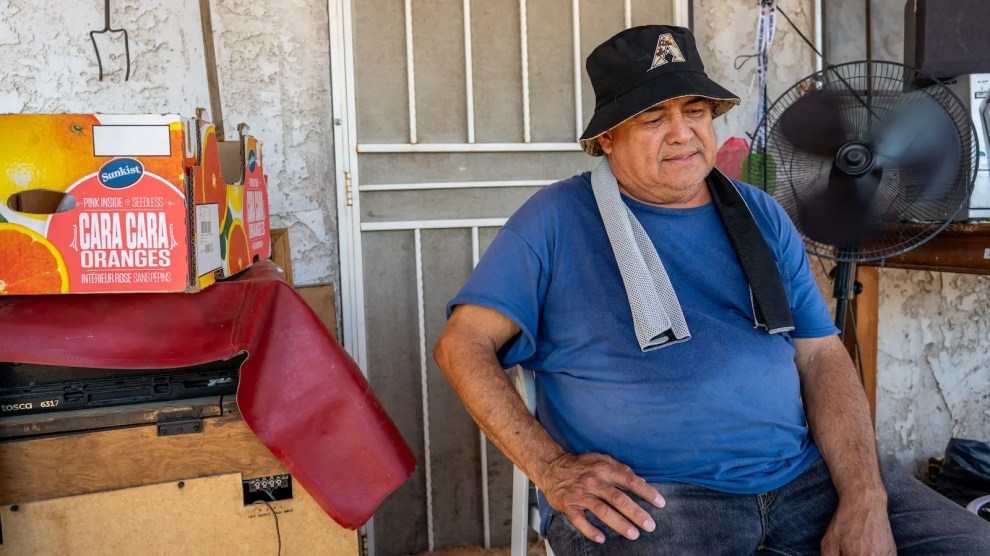This past weekend, the Army inspector general cleared 4 out of 5 senior officers involved in the Abu Ghraib prison abuse. Among those cleared of any responsibility was Lt. Gen. Ricardo Sanchez. This despite the fact that Sanchez has previously been singled out for his responsibility by the Pentagon’s Fay-Jones report (PDF):
I find that LTG Sanchez, and his DCG, MG Wojdakowski, failed to ensure proper staff oversight of detention and interrogation operations… It was not always clear to JIDC officers what [interrogation] approaches required LTG Sanchez’s approval, nor was the level of approval consistent with requirements in other commands centers.
Not the harshest language. But note that George Fay, one of the authors and investigating officers of the inquiry, was appointed by none other that Sanchez himself. To implicate the guy who appointed you in any way is no small statement.
Similarly, the Schlesinger report concluded that Sanchez “had failed to make sure that his staff was dealing with Abu Ghraib’s problems.” It also determined that Sanchez’s deputy, Maj. Gen. Walter Wojdakowski, “failed to act quickly enough to make urgent requests to higher levels for more troops at the understaffed prison.”
Yet, the Army Inspector General’s recent findings have laid the blame so far with only one high-ranking officer: Brig. Gen. Janis Karpinski. Karpinski has long argued that she’s merely a convenient female scapegoat. The Fay-Jones report seemed to acknowledge her stance that she consistently tried to get her superiors (Sanchez and Wojdakowski) to heed the concerns she had about Abu Ghraib. Page 37 notes, “BG Karpinski recognized Abu Ghraib’s vulnerabilities and raised these concerns frequently to both MG Wojdakowski and LTG Sanchez.”
There is obviously some animosity between Karpinski and Sanchez. According to recently unclassified portions of the Taguba report (PDF):
“Karpinski, who was criticized for leadership failures in the Taguba report, said Sanchez refused to provide her with the necessary resources to run Abu Ghraib and other prisons. She said that he didn’t ‘give a flip’ about soldiers, and she added…’I think that his ego will not allow him to accept a Reserve Brigade, a Reserve General Officer and certainly not a female succeeding in a combat environment. And I think he looked at the 800th Brigade as the opportunity to find a scapegoat…”
Sounds pretty defensive. But consider that, similar to Sanchez’s involvement in the Fay-Jones report, the Taguba report was ordered by Sanchez. And, he was particularly keen to investigate the actions of the 800th MP Brigade under the command of Karpinski. Also note that there was an air of sexism about the investigations.
There is also something to be said for all senior Army officers involved in the Iraqi prisons to be disciplined for their role in the abuses. Phillip Carter directs our attention to the Army’s field on the law of land warfare:
The commander is also responsible if he has actual knowledge, or should have knowledge, through reports received by him or through other means, that troops or other persons subject to his control are about to commit or have committed a war crime and he fails to take the necessary reasonable steps to insure compliance with the law of war or to punish violators thereof.
But by this account—that commanders are responsible for their subordinates as well as what they should have known—Sanchez is even more culpable than Karpinski. The fact that even the flimsy, subjective military inquiries into the abuses make clear that Sanchez either knew or should have known what was going on, added to the fact that the reports also note that Karpinski repeatedly tried to discuss her concerns with her superiors squarely points blame at Sanchez. And yet, Karpinski appears to be the only one taking the heat. Might this have something to do with the fact that she is the only one talking publicly about what went on in Abu Ghraib? It doesn’t make her any less guilty, but it makes you wonder why the Army can’t seem to take action against those who are found responsible in their own reports.
















